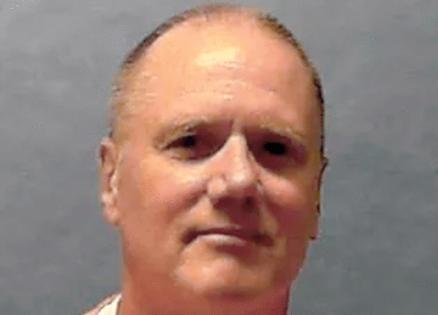Editorial: Florida's dubious death-penalty record
Published in Op Eds
Edward Zakrzewski II, 60, has spent nearly half of his life on Death Row, where next Thursday he is to be the ninth person executed in 2025, a modern one-year Florida record.
Only Gov. Ron DeSantis, who signed the death warrant, knows why he didn’t select one of the 120 other inmates who have been there longer, or why he doesn’t answer the many religious leaders who regularly plead with him to shut down what is suddenly the nation’s most active death factory.
The Florida Conference of Catholic Bishops asked DeSantis, a Catholic, for a pause and a dialogue toward “a better way to achieve the ends of justice.” “We do have the ability to protect society without killing human beings,” the bishops said.
He has not replied.
At this pace of two executions a month, DeSantis would finish his two terms having carried out 48, the most by any Florida governor since records were kept. If he’s doing it to run for president again, which he hasn’t bothered to deny, it would be revolting.
No sympathy for a killer
This is not to suggest sympathy for Zakrzewski.
He killed his entire family. His crimes were especially horrible. He pleaded guilty to slaughtering his wife Sylvia and their two children in the Panhandle town of Mary Esther in 1994. Court records show that he meant to stop her from divorcing him and taking their two young children to her native Korea.
An Air Force sergeant from Kalamazoo, Mich., Zakrzewski murdered his wife with a crowbar and a machete that he bought that day and then hacked Edward, 7, and Anna, 5, to death, one after the other, after calling them to the bathroom to brush their teeth.
But another macabre aspect to this case is the state’s doing.
Zakrzewski will be at least the 46th inmate Florida has put to death whose jury did not vote unanimously for the death penalty. That practice is allowed in only one other state — Alabama. He would be the first since 1996 for whom so few jurors — seven of twelve — favored execution.
After a jury in Okaloosa County voted 7-5 for two of the deaths and deadlocked 6-6 for Anna’s, the judge decreed death for all three. Even three decades ago, in one of the most conservative counties in Florida, a significant number of jurors did not favor his execution.
Strikingly, Florida law now excludes the death penalty unless at least eight jurors recommend it. Alabama requires at least 10 of 12.
Non-unanimous juries
The Florida Supreme Court, which rejected Zakrzewski’s final appeal, contorts itself to avoid giving prisoners a retroactive break. Divided recommendations were legal in 1996 when he was sentenced. Judges could impose death sentences even when jurors did not vote for them.
In 2016, the U.S. Supreme Court ruled that Florida’s law was unconstitutional for not requiring a unanimous jury vote to find any of the specified aggravating circumstances that justify a death sentence rather than life in prison without parole.
But justices left it to Florida’s Supreme Court to decide whether to make that retroactive to anyone but the prisoner who was appealing, Timothy Lee Hurst, and if so, how far back. It did not require a unanimous vote on the sentence itself.
The Florida court contrived a weird and arbitrary compromise, granting new sentencing hearings only to death row prisoners whose sentences were considered final after 2002, when the U.S. court issued a decision that was a precursor to Hurst’s. More than 100 qualified, but more did not.
Zakrzewski’s sentence became final in 1999, when the U.S. Supreme Court refused to review it.
Eight of 12 in Florida
In 2017, the Florida Supreme Court said any new death sentence would require a unanimous recommendation, but it reversed itself after DeSantis replaced three retiring justices.
In 2023, the Legislature and DeSantis took the court’s hint and provided for as few as eight of 12 jurors to recommend death, the nation’s lowest death penalty jury threshold. That followed the 9-3 split that spared the confessed killer of 17 students and staff at Marjory Stoneman Douglas High School in Parkland.
The strongest argument in Zakrzewski’s final appeal was the contrast between his jury’s votes and present law, but the court dismissed it as “untimely, procedurally barred and meritless.”
Florida kills indiscriminately, unable to distinguish between someone like Zakrzewski and Michael Bell, the last person executed, who received no consideration despite having been brutalized as a teen at Florida’s notorious Dozier School for Boys.
We hold to our view that the death penalty ought to be repealed because it is arbitrary in its application, far costlier to taxpayers than life without parole, and can put innocent people to death with no way to atone for such a ghastly miscarriage of justice.
Thirty people on death row in Florida have been exonerated, far more than any other state. There can be no confidence that innocent people have not been executed. Retired Justice Gerald Kogan, who died in 2021, said he believed there had been three.
Not even its advocates still claim that it’s a deterrent. Florida had already put 33 people to death when Zakrzewski killed his family.
_____
©2025 Orlando Sentinel. Visit orlandosentinel.com. Distributed by Tribune Content Agency, LLC.

























































Comments